Vocabulary development Normal Writing Worksheets for Ages 7-9
6 filtered results
-
From - To
Boost your child's language skills with our Vocabulary Development Normal Writing Worksheets for ages 7-9. These fun and engaging resources are crafted to expand young learners' vocabulary, enhance their spelling prowess, and improve their writing sentences. Perfect for second and third graders, these worksheets include various activities such as matching words to definitions, finding synonyms and antonyms, and sentence completion tasks. Designed by educational experts, our vibrant, kid-friendly worksheets make learning an adventure, promoting confidence and a love for words. Help your child write more expressively and communicate better with our user-friendly vocabulary development tools.
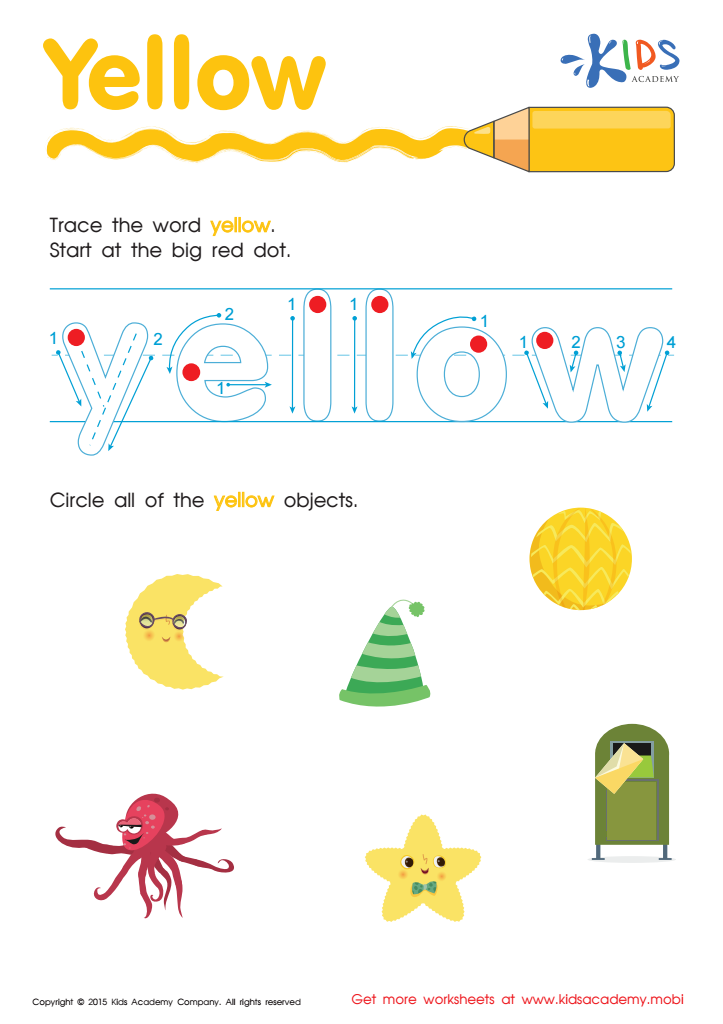

Yellow Tracing Color Words Worksheet


Phonics and Word Recognition: Assessment 3 Worksheet
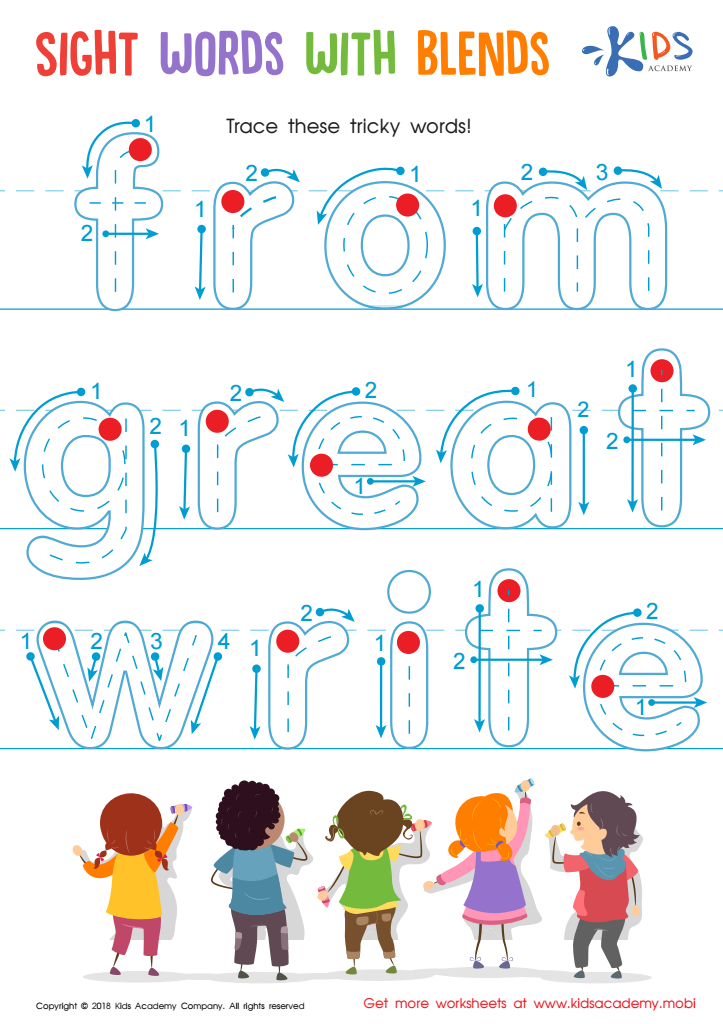

Sight Words with Blends Worksheet
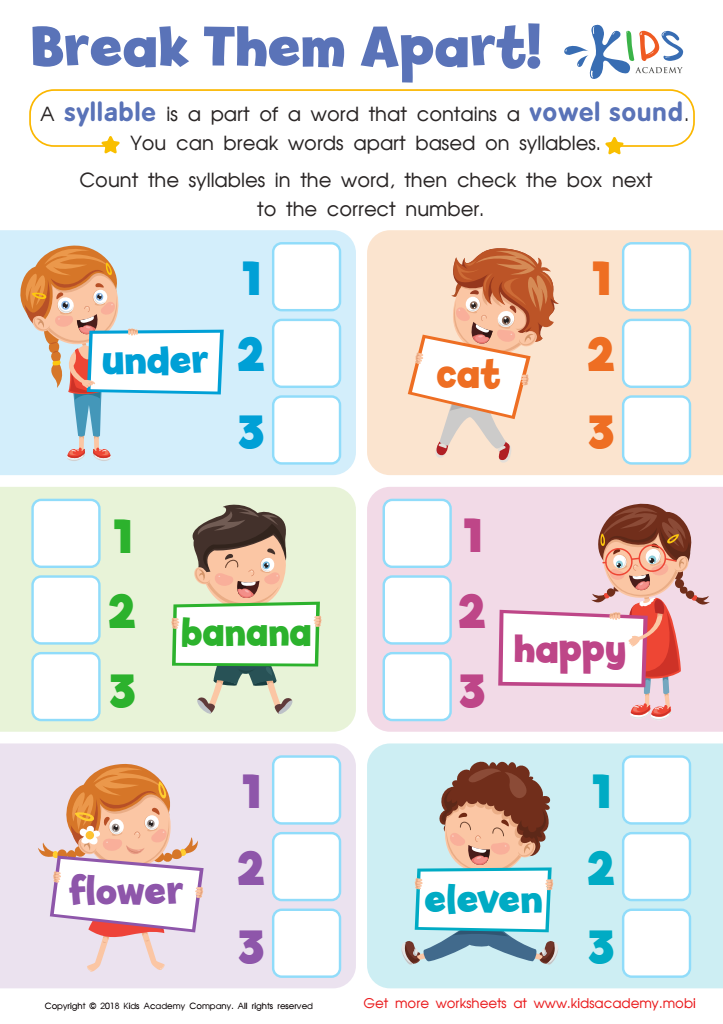

Reading: Break Them Apart Worksheet
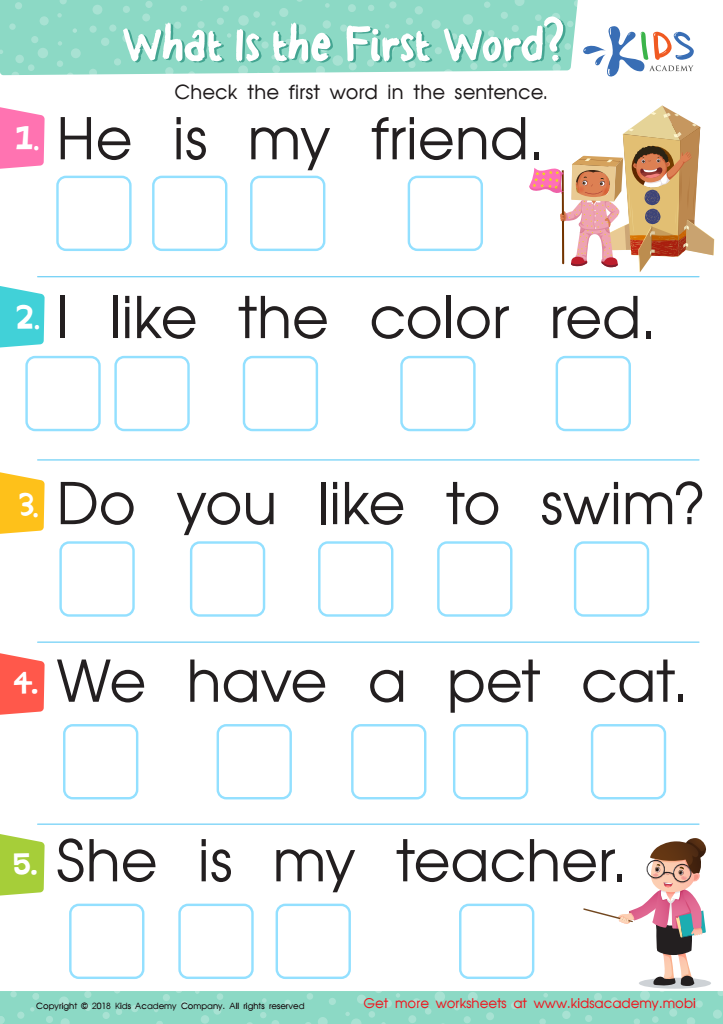

What is the First Word? Worksheet
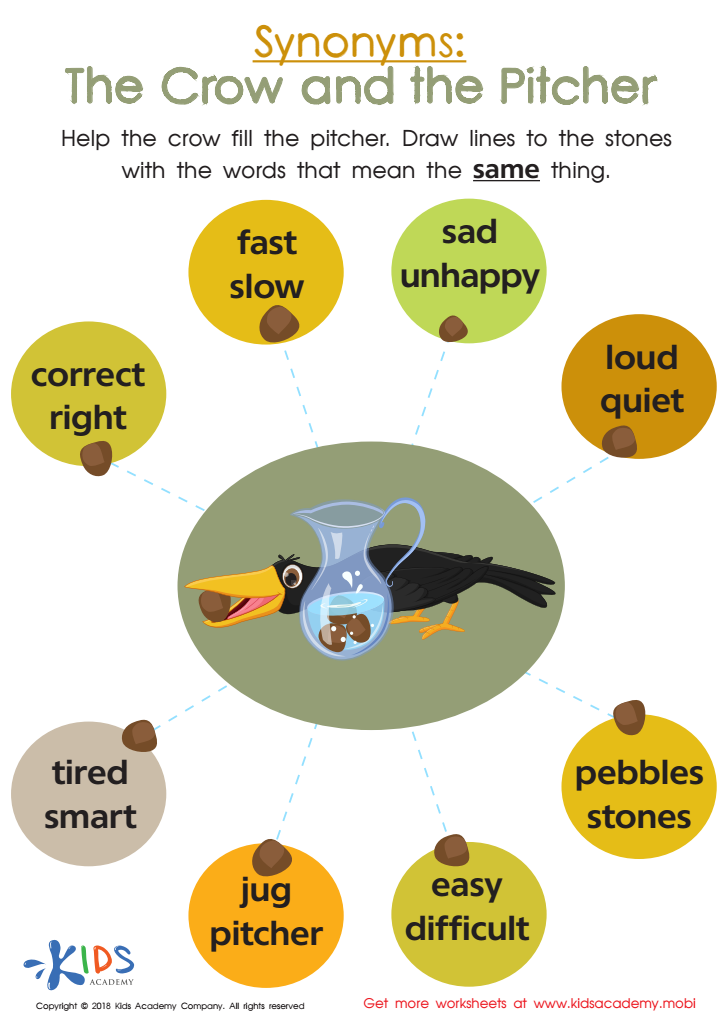

The Crow and the Pitcher Synonyms Worksheet
Vocabulary development is crucial for children aged 7-9 as it lays the foundation for their future learning and communication skills. During these formative years, kids transition from learning to read to reading to learn. A strong vocabulary helps them understand more complex texts and instructions, which is essential for academic success. Conversely, a limited vocabulary can restrict their comprehension, making it harder to keep up with their peers.
Moreover, vocabulary is fundamental for effective communication. When children possess a rich vocabulary, they can express themselves clearly and confidently. This ability is vital not only for their academic achievements but also for social interactions and emotional expression. They can share their thoughts, ask questions, and participate in discussions, making them more engaged learners and active participants in their environments.
In addition, vocabulary development enhances cognitive abilities. Learning new words stimulates memory, improves critical thinking, and fosters creativity. A robust vocabulary also supports better writing skills, as children can choose precise words to convey their ideas vividly.
Therefore, parents and teachers should pay attention to a child's vocabulary growth. Simple activities like reading together, engaging in discussions, and playing word-based games can significantly impact and support their overall development. By nurturing a rich vocabulary, we equip children with the tools they need for lifelong success.
 Assign to My Students
Assign to My Students
















